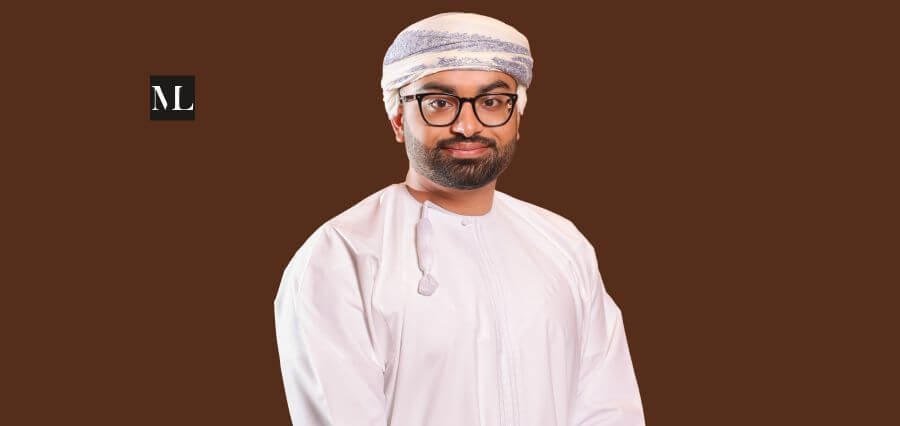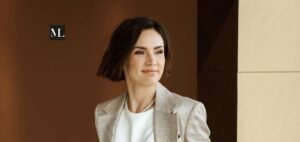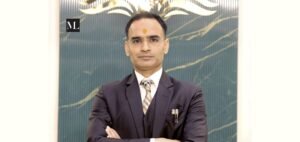The creation of a leader generally begins years in advance of him being officially accorded the title, and in the case of Mohsin Al-Bahrani, the journey is as much about purpose as about triumph. He has the special blend of cultural heritage and international orientation needed in today’s fast-paced world, anchored in Oman’s tradition but seasoned by interaction with other cultures. Besides becoming a successful business entrepreneur, his experiences have provided him with a voice committed to mentoring the next generation.
Resilience, adaptability, and sense of responsibility is what defines his professional life; these are expressed in his writings and mentorship of the youth. His advice and writings reflect the conviction that leadership is a responsibility to empower, motivate, and be a good difference and not seeking power.
He is fostering innovation, humanity-centered values, and a vision of balancing change and tradition in leading Mohsin Al-Bahrani LLC. He is remarkable, however, as a storyteller and a leadership thinker who is encouraging youth in embracing change but maintain their moral values. Leadership in Al-Bahrani’s style becomes less authoritarian and more legacy based.
Forging Leadership Through Fire and Vision
The making of a transformative leader rarely follows conventional pathways. Al-Bahrani’s leadership philosophy is crystallized through a combination of local heritage and international exposure. Growing up in Oman, he absorbed the fundamental values that define long-term business success trust, integrity, and community responsibility. These formative years instilled in him an understanding that sustainable growth requires deep roots in authentic relationships and unwavering ethical standards.
His academic journey to the United Kingdom expanded his worldview, exposing him to global business practices and international market dynamics. This international experience taught him the critical importance of adaptability in an increasingly competitive world. The fusion of Omani values with global perspectives became the cornerstone of his leadership approach, enabling him in navigating complex business landscapes while maintaining cultural authenticity.
The true test of his leadership mettle arrived during the COVID-19 pandemic, a defining moment that separated resilient leaders from the rest. While global markets crumbled and supply chains collapsed overnight, he demonstrated the kind of decisive leadership that will transform crises into catalysts for growth. His response to the pandemic revealed a leader capable of rapid adaptation without compromising core values.
During those unprecedented months, he spearheaded the rapid digitization of MHD ACERE’s processes, launched e-commerce platforms for automotive sales, and strategically merged divisions to maintain organizational agility. These weren’t merely reactive measures; they represented a fundamental shift towards future-ready business models that positioned the company ahead of market recovery.
“Innovation cannot wait for perfect conditions. It must be embraced when challenges reach their peak,” he reflects on this pivotal period. This philosophy transformed potential devastation into sustainable competitive advantage, demonstrating that true leadership emerges not from avoiding difficulties but from transforming them into opportunities for reinvention and growth.
Balancing Tradition with Transformation
In a region where respect for heritage runs deep, Al-Bahrani has mastered the delicate art of honoring tradition while pioneering innovation. His approach challenges the conventional wisdom that modernization requires abandoning cultural roots. Instead, he demonstrates how traditional values can strengthen modern business practices, creating organizations that are both globally competitive and locally authentic.
At MHD ACERE, traditional values like integrity, respect for people, and strong community connections form the operational foundation. These principles guide decision-making processes, stakeholder relationships, and long-term strategic planning. However, he ensures these values support rather than constrain innovation initiatives, digital transformation projects, and sustainability programs.
The introduction of electric vehicle infrastructure and e-commerce platforms exemplifies this balanced approach. While these initiatives represent forward-looking strategic moves, their implementation relies heavily on trust, transparency, and relationship-building distinctly traditional business practices. This synthesis creates a unique competitive advantage, enabling rapid innovation deployment while maintaining stakeholder confidence and community support.
“Heritage provides our identity’s foundation, while modernization unlocks our future’s potential. Success comes from recognizing these as complementary forces rather than competing priorities,” he explains. This perspective has enabled MHD ACERE to pursue aggressive growth strategies while maintaining the trust and loyalty that sustain long-term business relationships.
The People-Centric Leadership Revolution
In an era dominated by data-driven decision-making and algorithmic efficiency, Al-Bahrani champions a leadership style that places human connection at its center. His approach challenges the notion that high-pressure business environments require leaders to sacrifice empathy for effectiveness. Instead, he demonstrates how emotional intelligence and human connection enhance strategic decision-making and organizational resilience.
During market disruptions and critical decision-making periods, he prioritizes listening, team involvement, and transparent communication. This approach doesn’t slow down decision-making processes; it accelerates them by building consensus, reducing resistance, and ensuring implementation success. His teams understand not just what decisions are made, but why they’re necessary and how they contribute to collective success.
The pandemic provided a crucial test of this leadership philosophy. While many organizations struggled with employee morale and customer relationships, MHD ACERE’s emphasis on empathy and human connection enabled not just survival but growth. By maintaining open communication channels, involving teams in problem-solving processes, and demonstrating genuine concern for both employee and customer welfare, the organization emerged stronger from the crisis.
“Empathy isn’t a soft skill. It’s a core business strength that drives sustainable success,” he emphasizes. This perspective transforms traditional notions of business leadership, demonstrating how human-centered approaches enhance rather than compromise organizational performance and market competitiveness.
Positioning Oman on the Global Stage
Al-Bahrani envisions Oman’s unique geographic and cultural position as a strategic advantage in global markets. Located at the crossroads of East and West, the Sultanate is offering international partners a stable, culturally rich gateway to regional markets. His role extends beyond corporate leadership to national development, positioning Omani industries as competitive global players while attracting international investment and partnerships.
Through MHD ACERE’s strategic expansion into healthcare, leasing, and clean mobility, he demonstrates how individual corporate success can enhance national reputation and global competitiveness. These diversification initiatives don’t just grow company revenues; they showcase Omani capabilities in emerging industries, attract international partners, and create employment opportunities for local talent.
His vision encompasses integration into international supply chains, leveraging Oman’s strategic location and stable business environment to become an essential partner for global corporations. This approach transforms the country from a regional market into a strategic hub, enhancing its influence and economic significance on the international stage.
“Our growth must be connected, not isolated. Success means helping Oman integrate into global value chains while showcasing the innovation and talent our country offers,” he explains. This perspective aligns corporate strategy with national development objectives, creating synergies that benefit both business performance and broader economic growth.
Crisis as Catalyst for Growth
The COVID-19 pandemic revealed Al-Bahrani’s capacity to transform existential challenges into transformational opportunities. When global supply chains collapsed and customer behaviors shifted overnight, he responded with strategic agility that positioned MHD ACERE for accelerated growth rather than mere survival.
The crisis demanded immediate operational changes merging business verticals for efficiency, introducing online automotive sales platforms, and maintaining team motivation despite widespread uncertainty. However, his response went beyond tactical adjustments to fundamental strategic repositioning. The pandemic became a catalyst for innovations that might have taken years to implement under normal circumstances.
This experience shaped his leadership philosophy around adaptability, transparency, and trust. Rather than viewing crises as obstacles to overcome, he approaches them as opportunities to reinvent organizational capabilities and strengthen competitive positions. This mindset transforms potential threats into strategic advantages, enabling proactive rather than reactive organizational development.
“Resilience comes not from having all the answers but from adaptability, transparency, and trust,” he reflects. This philosophy guides his approach to future challenges, ensuring MHD ACERE remains not just resilient but growth-oriented during periods of uncertainty and market volatility.
Mentoring the Next Generation
Al-Bahrani recognizes his responsibility to develop future leaders who can continue Oman’s growth trajectory. His influence extends beyond corporate boundaries to young professionals and aspiring leaders throughout the Sultanate. His mentorship philosophy emphasizes practical skills combined with enduring values, preparing the next generation for leadership challenges that don’t yet exist.
He advocates for agility as a fundamental leadership capability, enabling rapid adaptation to changing market conditions and emerging opportunities. However, this adaptability must be anchored in integrity and long-term thinking, ensuring that rapid responses don’t compromise ethical standards or sustainable growth principles.
His advice to emerging leaders emphasizes empowerment over control, collaboration over hierarchy, and community benefit over individual success. These principles prepare future leaders to navigate complex stakeholder relationships while maintaining focus on broader social and economic development objectives.
“Success is never an individual journey. Focus on building sustainable growth that benefits your community and your country,” he emphasizes to young professionals. This perspective ensures that future Omani leaders will continue the legacy of values-based leadership while embracing innovation and global competitiveness.
Innovation as Cultural DNA
At MHD ACERE, innovation transcends departmental boundaries to become organizational DNA. Al-Bahrani cultivates an environment where curiosity is encouraged, experimentation is rewarded, and new ideas can be tested without fear of failure. This cultural transformation enables continuous adaptation and competitive advantage in rapidly changing markets.
The organization’s journey into digital automotive sales, electric vehicle infrastructure, and healthcare diversification demonstrates this innovative culture in action. These initiatives emerged not from top-down mandates but from organizational environments that encourage creative problem-solving and strategic experimentation.
He defines innovation broadly, encompassing not just technological advancement but mindset transformation. The core question driving organizational innovation is simple yet powerful: “How can we do this better for our customers, employees, and communities?” This customer-centric and community-focused approach ensures that innovation serves broader purposes than competitive advantage alone.
This innovation culture aligns with Oman’s Vision 2040, positioning MHD ACERE as a contributor to national development objectives while building sustainable competitive advantages. The organization becomes a laboratory for testing business models and practices that can be scaled across Omani industries, enhancing the country’s overall economic competitiveness.
The Anchors of Authentic Leadership
Behind Al-Bahrani’s public success lie personal principles that guide decision-making during both triumphant and challenging moments. Integrity, resilience, and humility form the foundation of his leadership approach, ensuring consistency across different situations and stakeholder relationships.
Integrity ensures that every decision aligns with core values, even when alternative choices might offer short-term advantages. This principle builds the trust necessary for long-term stakeholder relationships and sustainable business growth. Resilience enables navigation of uncertainty without losing strategic focus, while humility maintains perspective on leadership as service rather than ego fulfillment.
His mentors taught him the importance of patience and foresight crucial capabilities in markets where quick wins often compromise long-term success. His international academic background provided strategic thinking tools while respecting local business realities and cultural contexts.
These personal anchors create consistency in his leadership approach, enabling stakeholders to predict and trust their responses to various situations. This predictability builds confidence in his strategic vision and willingness to support ambitious growth initiatives.
Building a Legacy of Purposeful Growth
Al-Bahrani’s vision for his legacy extends beyond corporate success to meaningful contribution to Oman’s development and global reputation. He envisions MHD ACERE remembered not merely as a profitable enterprise but as a genuine partner in national progress, demonstrating how business success will serve broader social and economic objectives.
For the organization, the legacy should encompass innovation, trust, and people-centric growth principles that create sustainable competitive advantages while contributing to stakeholder wellbeing. For the broader community, the legacy should focus on empowerment through opportunity creation and active participation in national development initiatives.
On a personal level, he aspires to be remembered as a leader who build trust, inspire people, and ensures that organizational growth is maintaining a human dimension. This aspiration reflects his belief that business success without positive social impact represents incomplete achievement.
“I want growth to always have a human face,” he explains. This philosophy ensures that his legacy will encompass not just financial performance but meaningful contribution to individual lives and community development.
Leadership for a Changing World
As global markets continue their rapid transformation, Al-Bahrani is advocating for leadership approaches that emphasize adaptability over control, empowerment over hierarchy, and values consistency over tactical flexibility. His message to current and future leaders emphasizes the importance of anchoring change management in timeless principles while embracing innovation with courage and conviction.
“Leadership today is less about control and more about adaptability. While everything else changes, values must remain constant,” he observes. This perspective provides a framework for navigating uncertainty while maintaining organizational coherence and stakeholder trust.
His leadership philosophy positions integrity, empathy, and trust as timeless principles that enhance rather than constrain innovation and competitive positioning. This approach demonstrates that values-based leadership strengthens rather than weakens organizational performance in competitive global markets.
Through his example, Mohsin Al-Bahrani is illustrating how leaders can honor cultural heritage while driving technological innovation, maintain human connections while pursuing global expansion, and achieve business success while contributing to national development. His journey continues to inspire leaders across Oman and beyond, demonstrating that authentic leadership remains not just relevant but essential in our rapidly changing world.




